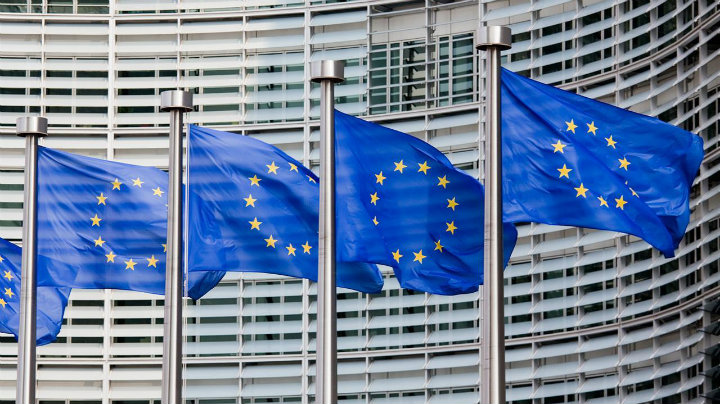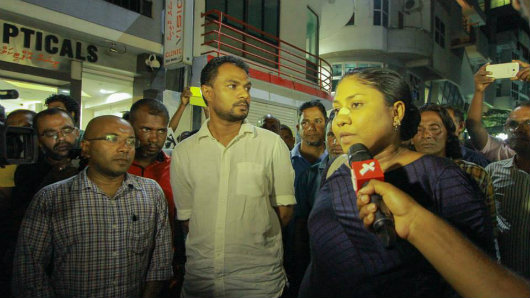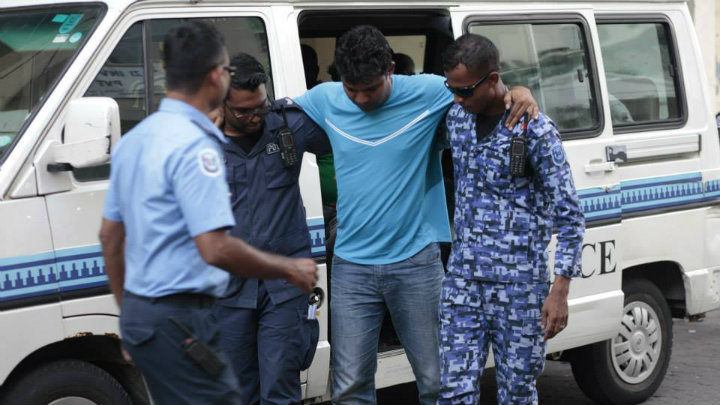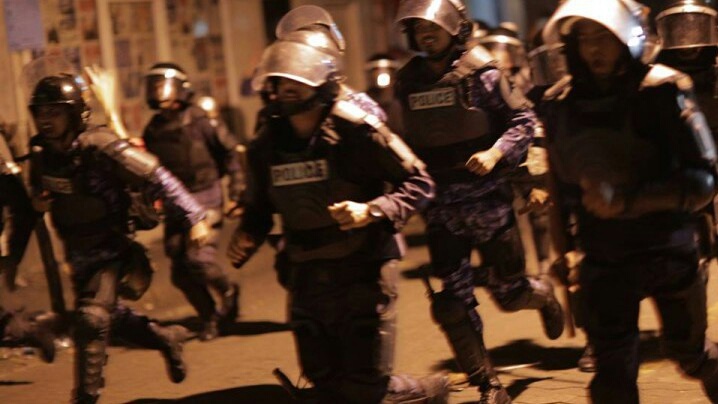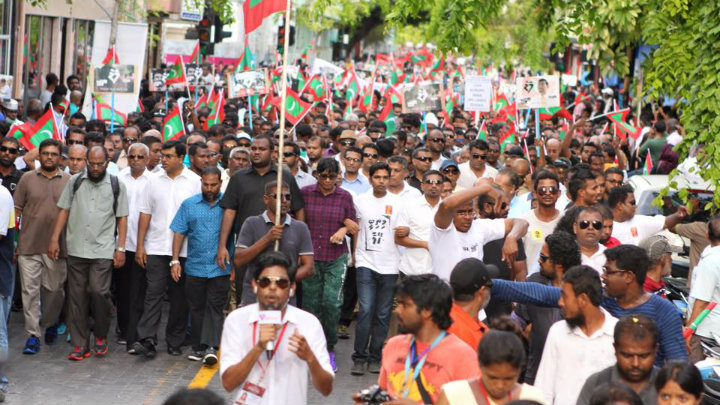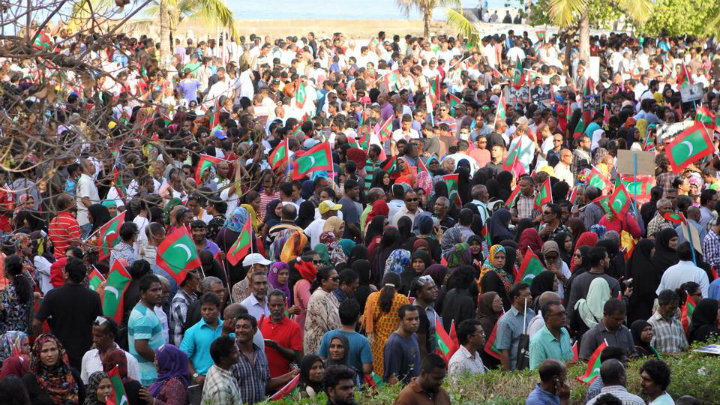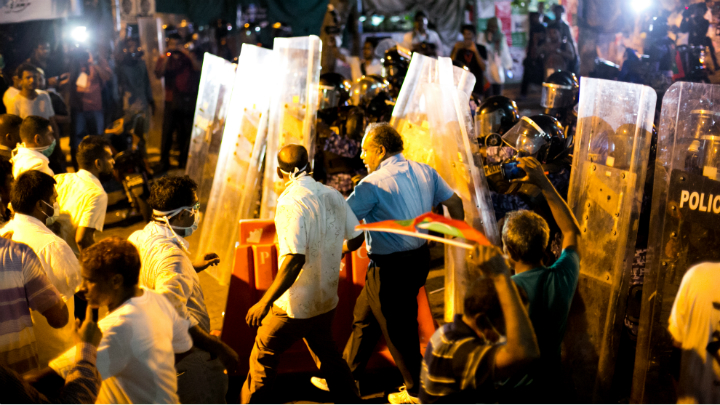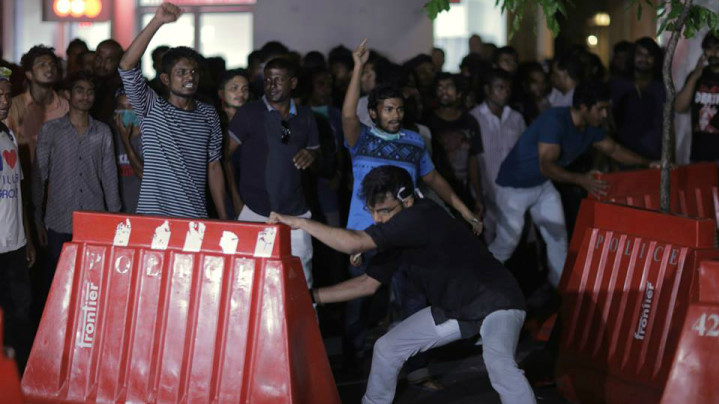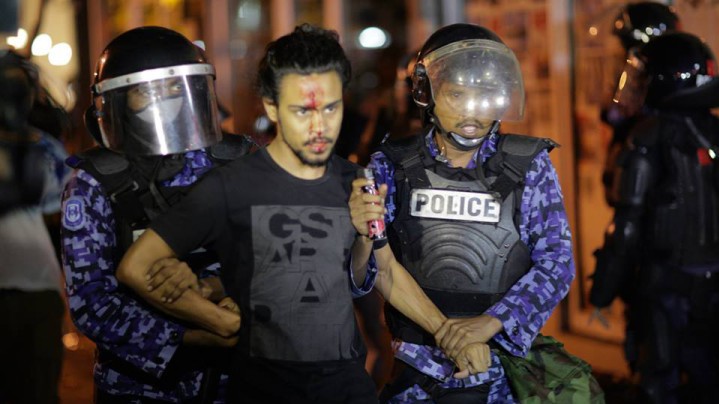Approximately 20,000 people took to the streets on May Day in the largest anti-government protest in a decade. But protesters failed to seek the release of ex-president Mohamed Nasheed or force the government to negotiate. Instead, scores were arrested and injured in violent clashes.
What happened? Who attacked first, protesters or police? Did the security forces use disproportionate force? Minivan News recounts what we saw and heard on the streets of Malé.
Revolutionary fervour was in the air when protesters set off at 4:45pm on a march through Malé’s thoroughfare Majeedhee Magu. The de facto leader, Adhaalath Party president Sheikh Imran Abdulla, started the march saying the opposition would “emerge victorious.”

From the start, the opposition Maldivians against tyranny coalition’s plans were unclear to protesters. Many expected leaders to announce plans at the end of the march. Protesters were geared up for a crackdown, some wore swimming goggles and surgical masks and had fashioned home made masks out of plastic bottles. Many carried bottles of coca cola to reduce effects of pepper spray and tear gas.

The Qur’an was blaring over static from a lorry at the frontline, while music was playing on lorries stationed in the middle and at the end. Protesters marched at a brisk pace as onlookers applauded and waved. Several megaphones, set up on balconies at private residences, were broadcasting opposition-aligned Raajje TV and 97 Minivan radio’s live coverage of the march.
At the western edge of Majeedhee Magu, opposition leaders stopped to speak to the crowds. A nervous energy hung in the air. Speakers said Muslims were obligated to stand up against tyranny and injustice. The Maldivian Democratic Party’s (MDP) chairperson Ali Waheed said he would only go home after securing Nasheed’s release.
Protesters in the middle and at the tail end could not hear the speeches. The crowd was agitated. Some attempted unsuccessfully to get protesters to sit down on the street. When Sheikh Imran took the stage, protesters faced the setting sun and put up their hands in prayer. Many were crying when Imran tearfully prayed for courage to remain steadfast and for mercy from the security forces.
Then came the announcement that protesters were to go and perform dusk prayers at the Islamic Center located next to the city’s main Republic square and the police and military headquarters.
The crowd broke off chanting Allah Akbar, with groups of thousands taking various routes. Police in riot gear had blocked off all the roads leading to the Islamic center. Clashes broke out as protesters attempted to break through police lines. Security forces indiscriminately used pepper spray and beat protesters with batons.
The air was thick with tear gas, pepper spray, anger and fear.

At the fish market, blocks away from the republic square, Minivan News journalists saw Sheikh Imran and Ali Waheed turn back as others urged on protesters to march through police lines. But when the leaders turned back, protesters fell back. MP Ahmed Mahloof, however, attempted to lead the crowd, but the ranks were nervous and disorganised, falling back to police’s use of pepper spray.
Police officers were visibly tense.
In narrow lanes surrounding the square, police in riot gear pushed protesters back. Some took refuge in mosques and were pepper sprayed inside. Stun grenades were thrown. A standoff ensued at the fish market until a protest lorry drove through police lines knocking some officers to the ground, but protesters were unable to follow the lorry into the square.

Police cracked down. The crowd threw bottles and pavement bricks. Pitched battles ensued. Police had already arrested scores. Some detainees were frothing at the mouth and hyperventilating from the effects of pepper spray.

At 7pm, the protest was in disarray. Many had already gone home.
Confusion reigned. Messages began circulating, urging protesters to regroup, first at the Social Center at the western edge, then at Artificial Beach at the eastern edge, and finally on Chaandhanee Magu, the central road leading to the square.
The streets were littered with bottles, flags, placards and discarded shoes.
Opposition leaders, MP Ibrahim Mohamed Solih, Jumhooree Party deputy leader Ameen Ibrahim, and MDP MPs urged protesters to regroup on Chaandhanee Magu. “We are here with you, we did not hide,” they said.

But protesters fell back when police fired thunder flashes and periodically charged into the crowd with batons. Lorries carrying dozens of police officers drove at high speed into the crowds.

Confrontations ensued with protesters throwing glass and plastic bottles. A policemen was severely beaten and was rescued by former MDP MP Ahmed Easa.
Irate police officers once again charged into the crowd, and trapped dozens of protesters in narrow blocked-off lanes and made indiscriminate arrests.

Hundreds of angry protesters remained in pockets, rallying around opposition leaders periodically, but dispersing when groups of police officers charged into the crowd. A Raajje TV cameraman was injured.

Some protesters took refuge in private homes. But police officers forcefully entered homes and indiscriminately pepper sprayed residents. Security forces and protesters hurled profanities at each other. A dozen officers also entered a building on Majeedhee Magu and took down a pair of megaphones.
Police stepped up arrests at 9pm, picking up people at random, packing them onto lorries and driving off at high speed. Easa who had helped the fallen police officer was arrested and taken onto a police lorry. He was surrounded by Specialist Operations officers and Minivan News journalists heard him scream repeatedly in pain.

At 11pm came the news that Sheikh Imran had been arrested from Ali Waheed’s apartment. Small scale confrontations continued on the streets, but the crowds dwindled as police continued indiscriminate arrests. Many who were arrested were driven to a different location in the city and released with warnings.
By 1am, the crowds had largely dispersed, but police presence remained high. By 2pm, the roads were nearly empty. Ali Waheed and JP’s Ameen Ibrahim were arrested by 3pm.
Photos by Shaari, Dhahau Naseem and Ahmed ‘Anju’ Azim.
Likes (1)Dislikes
(1)Dislikes (0)
(0) 